Day 5 concluding our inaugural annual Sidetracks And Detours not literally a JoinedUpReadingAndWriting Literary Festival: GUILTY, OR NOT GUILTY?
Day 5 concluding our inaugural annual Sidetracks And Detours not literally a JoinedUpReading AndWriting Literary Festival
GUILTY, OR NOT GUILTY?
you, the jury, must decide
says Norman Warwick
Good morning. I recall to the stand my expert witness, Professor Collum McCann, an Irish writer of literary fiction. He was born in Dublin, Ireland, and now lives in New York. He is a Distinguished Professor of Creative Writing in the Master of Fine Arts program at Hunter College, New York, with fellow novelists Peter Carey and Tea Obreht, and has visited many universities and colleges all over the world, and is clearly qualified to speak as an expert witness against the accusation that our writers are under-worked and over-paid.
Professor, you explained to the court, when giving evidence yesterday, about what we might call the attitudes of those who write for a living. The case before the court is that writing is not a vocation at all and that many of those who earn a living by pronouncing themselves to be creative writers are often re-cycling the words spoken or written by others and silently by considered by nearly all humankind.
We have heard from the prosecution that some writers have ´admitted´ to participating in some kind sorcery. They named an award winning writer´, Gabriel Garcia Marquez, as having said:
´Then the writing became so fluid that I sometimes felt as if I were writing for the sheer pleasure of telling a story, which may be the human condition that most resembles levitation´.
Professor McCann, was he referring to some form of witchcraft?
´Writing a character into being is like meeting someone you want to fall in love with. You don’t care (yet) about the facts of his/her life. Don’t overload us with too much information. Allow that to seep out later. We are attracted by a moment in time – a singular moment of flux or change or collapse – not by grand curricula vitae. So don’t generalise. Be specific. Go granular. The reader must fall in love with your characters quickly (or indeed, learn to hate them quickly).
We have to have something happen to them: something that jolts our tired hearts awake. Make it traumatic, make it mournful, make it jubilant, it doesn’t matter – just allow your reader to care for the physical body that your words evoke, the person behind the language. Later on in the story we can settle down with them and get to know them in a wider sense.
Make each character distinct. Give them verbal tics. And never forget that people talk away from what they really mean´.
You talk of verbal tics and talking away from what is really meant, and yet you speak of writers as admirable. Why is that.
´Sometimes we take a character from our own immediate lives and we build a new person upon that scarecrow. Or sometimes we take well-known characters in history and shape them in new ways. Either way we have a responsibility to write them into life.
In the end you should probably know your characters as well as you know yourself. You should be able to close your eyes and dwell inside that character’s body. The sound of her voice. The texture of her footsteps. Walk around with her for a while. Let her dwell in the rattlebag of your head. Make a mental list of who/what she is, where she comes from. Appearance. Body language. Unique mannerisms. Childhood. Conflicts. Desires. Voice. Allow your characters to surprise you. When it seems they should go right, send them left. When they appear too joyful, break them. When they want to leave the page, force them to stay a sentence longer. Complicate them. Conflict them. Give them forked tongues. This is what real life is all about. Don’t be too logical. Logic can paralyse us´.
What do you say to those who do indeed accuse writers of having a rattlebag of a head and would also suggest that logic is imperative to all walks of life?
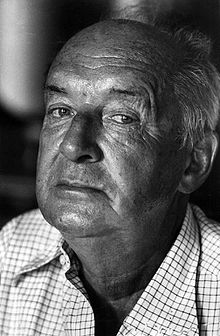
´Nabokov (left) says that his characters are just his galley slaves – but he’s Nabokov, and he’s allowed to say things like that. Let me respectfully disagree. Literary characters deserve their creator´s respect. Some reverence. Some life of their own. You (writer or reader) must thank them for surprising you, and for ringing the doorbell of your imagination.
The prosecution would have that such characters surprise only by the lies they tell, and that we should not believe a word they say.
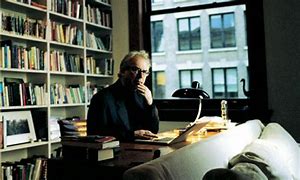
It is true that the writer Peter Carey has said that “The declared meaning of a spoken sentence is only its overcoat, and the real meaning lies underneath its scarves and buttons.
Professor, to help the jury consider the source, as it were, we should perhaps explain that Peter Carey is in fact an Australian novelist. Carey has won the Miles Franklin Award three times and is frequently named as Australia’s next contender for the Nobel Prize in Literature. Carey is one of only five writers to have won the Booker Prize twice—the others being J. G. Farrell, J. M. Coetzee, Hilary Mantel and Margaret Atwood. Carey won his first Booker Prize in 1988 for Oscar and Lucinda, and won for the second time in 2001 with True History of the Kelly Gang. In May 2008 he was nominated for the Best of the Booker Prize.
That is correct. There are so many rules, or suggestions, when it comes to dialogue. Forget the ummm and forget the errrs: they don’t translate on the page. Try not to use dialogue to convey information, or at least a slab of obvious information. Interruptions are great. Try writing a conversation between three, four, five people. Let the dialogue work for itself. Use he said and she said, but avoid clumsy descriptions. Forget about the overblown gasping, exclaiming, insisting, bellowing.
Make your dialogue distinct from the surrounding description, not just in rhythm but in length too. It will break up the prose. Have it be a respite on the page, or have it tee up the words that are about to come. Make each character distinct. Give them verbal tics. And never forget that people talk away from what they really mean. Lies are very interesting when they emerge in speech. Make action occur within the conversation. Seldom begin in the beginning: catch the dialogue halfway through. No need for hellos or howareyous. No need for goodbyes either. Jump out from the conversation long before it truly finishes´.
There will be some who find contradiction, even clear confusion in your phrases, Professor McCann, Could you clarify for the court precisely what you mean?
´Even if using dialect, or patois, or Dublinese, you must realise that there is a reader at the end of the sentence. Don’t confuse them. Don’t knock them out of the story. A wee bit is enough to get a Northern Irish accent. Don’t go Oirish on yourself. Don’t fall into stereotype. No arragh bejaysus and begob. No overdone southern twang. It’ll make y’all wanna holler. No Jamaican overdose, mahn. No Bhrrooklyn nasal noise.
Study the masters, such as Roddy Doyle.
I know Roddy Doyle (below) as the author of a biography of one of my footballing heroes, Roy Keane. Is that the writer you mean?
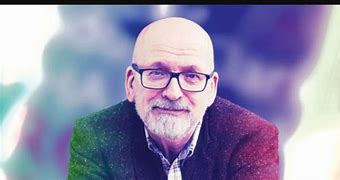
Yes, the same Roddy Doyle who is an Irish novelist, dramatist and screenwriter. He is the author of eleven novels for adults, eight books for children, seven plays and screenplays, and dozens of short stories. Several of his books have been made into films, beginning with The Commitments in 1991. Doyle’s work is set primarily in Ireland, especially working-class Dublin, and is notable for its heavy use of dialogue written in slang and Irish English dialect. Doyle was awarded the Booker Prize in 1993 for his novel Paddy Clarke Ha Ha Ha.
However, he is not the only master of his craft. Consider, as well, Louise Erdrich. Elmore Leonard,. Marlon James. And always remember that what we don’t say is as important as, if not more so than, what we do. So study the silences too, and have them working on the page. You soon find out how loud the silence really is. Everything unsaid leads eventually to what is said.´
Can you explain to this court what Jorge Luis Borges meant when he claimed that a book is not an isolated being: it is a relationship, an axis of innumerable relationships
´Every work of fiction is organised somehow – and the best of them are more profoundly organised than they ever let on. Our stories rely on the human instinct for architecture. Structure is, essentially, a container for content. The shape into which your story gets is a house slowly built from the foundation up. Or maybe it’s a tunnel, or a skyscraper, or a palace, or even a moving caravan, driven forward by your characters. In fact, structure can be any number of things: you just have to make sure that it doesn’t become an elaborate hole in the ground into which we bury ourselves, unable to claw out.
Some writers try to envision the structure beforehand, and they shape the story to fit it, but this is so often a trap. You should not try to stuff your story into a preconceived structure. A proper structure mirrors the content of the story it wants to tell. It will contain its characters and propel them forward at the same time. And it will generally achieve this most fully when it does not draw too much attention to itself. Structure should grow out of character and plot, which essentially means that it grows out of language. In other words, the structure is forever in the process of being shaped. You find it as you go along. Chapter by chapter. Voice by voice. Ask yourself if it feels right to tell the story in one fell swoop, or if it should be divided into sections, or if it should have multiple voices, or even multiple styles. You stumble on through the dark, trying new things all the time. Sometimes, in fact, you don’t find the structure until halfway through, or even when you’re close to being finished. That’s OK. You have to trust that it will eventually appear and will make sense´.
As you are witness for the defence of good writing, Professor, how do you respond to those readers who would tell you that all this technique is irrelevant to a reader who simply wants a good story or plot?
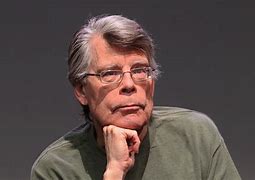
´You might be surprised to know that Stephen King actually has told us that Plot is, he thinks, the good writer’s last resort and the dullard’s first choice´.
But surely, he is a writer of horror writer and is known for the twists and turns in his plot-lines.?
´We teachers, we editors, we agents, we readers, often make a mistake by concentrating too much on plot: it is not the be-all and end-all in a piece of literature. Plot matters, of course it matters, but it is always subservient to language. Plot takes the backseat in a good story because what happens is never as interesting as how it happens. And how it happens occurs in the way language captures it and the way our imaginations transfer that language into action.
So give me music then, young maestro, please. Make it occur the way nobody ever made it occur before. Stop time. Celebrate it. Demolish it. Slow the clock down so that the tick of each and every second lasts an hour or more. Take leaps into the past. Put backspin on your memory. Be in two or three places at one time. Destroy speed and position. Make just about anything happen.
Plot takes the backseat in a good story because what happens is never as interesting as how it happens-
Maybe in this day and age we are diseased by plot. Let’s face it, plots are good for movies, but when over-considered they tend to make books creak. So, unbloat your plot. Listen for the quiet line. Anyone can tell a big story, yes, but not everyone can whisper something beautiful in your ear. In the world of film we need motivation leading to action, but in literature we need contradiction leading to action, yes, but also leading to inaction. Nothing better than a spectacular piece of inaction. Nothing more effective than your character momentarily paralysed by life.
The greatest novel ever written has very little apparent plot. A cuckold walks around Dublin for 24 hours. No shootouts, no cheap shots, no car crashes (though there is a biscuit tin launched through the air). Instead it is a vast compendium of human experience. Still, this doesn’t take away from the fact that every story told has some sort of plot (especially Ulysses, which perhaps has more plot than any)´.
I myself have heard readers, and even aspiring writers, suggest that the story must drive long and that unnessecary punctuation cannot get in its way-
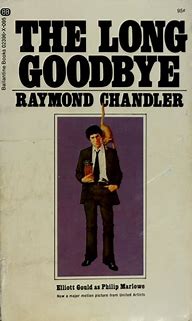
Ah well, Raymond Chandler the crime novelist gave a very witty example of this when he wrote to rebuke one of his editors.
´It’s not just a throwaway thing (Comma)
When I split an infinitive, God damn it, I split it so it will stay split.
It’s not a throwaway thing to tell you the truth. It’s not a throwaway thing, to tell you the truth.
Punctuation matters. In fact, sometimes it’s the life or death of a sentence. Hyphens. Full stops. Colons. Semicolons. Ellipses. Parentheses. They’re the containers of a sentence. They scaffold your words. Should a writer know her grammar? Yes, she should. Don’t overuse the semicolon; it is a muscular comma when used correctly. Parentheses in fiction draw far too much attention to themselves. Learn how to use the possessive correctly as in most good writer’s work. (Oops.) Never finish a sentence with an at. (Sorry.) Avoid too many ellipses, especially at the end of a passage, they’re just a little too dramatic … (See?)
Grammar changes down through the years: just ask Shakespeare or Beckett or the good folks at the New Yorker. The language of the street eventually becomes the language of the schoolhouse. It’s the difference between the prescriptive and the descriptive. So much depends, as William Carlos Williams might have said, upon the red wheelbarrow – especially if the barrow itself stands solitary at the end of the line.
But then again, a sentence can be over-examined. Good grammar can slow a sentence – or indeed a wheelbarrow – down. The perfect run-along of words can sound so stiff. Every now and then we have to disregard the serial comma, or leave our participles dangling, even in the rudest way.
Sometimes we make a mistake on purpose. Perhaps knowing the difference between a main clause and a dependent clause doesn’t matter so much so long as you can intuit the difference. On occasion we write a sentence that isn’t, in fact, correct, but it sings. And the question is: would you rather be the ornithologist or the bird?
Writers feel the grammar rather than knowing it. This comes from good reading. If you read enough, the grammar will come.
it has been said that best-selling authors, particularly those who can sell film rights to their work, are grossly overpaid for the relatively short time it takes to write a book. How can you balance the equation?
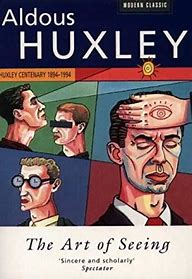
I would remind those who do not value our writers and their writings that Aldous Huxley said there are things known and there are things unknown, and in between are the doors of perception
I attach what he said to the fact that research is the bedrock of nearly all good writing, even poetry. We have to know the world beyond our own known world. We have to be able to make a leap into a life or a time or a geography that is not immediately ours. Often we will want to write out of gender, race, time. This requires deep research.
Yes, Google helps, but the world is so much deeper than Google. A search engine can’t hold a candle to all the libraries in the world where the books actually exist, live, breathe, and argue with one another. So go down to the library. Check out the catalogues. Go to the map division. Unlock the boxes of photographs. If you want to know a life different from your own, you better try to meet it at least halfway. Get out in the street.
Talk to people. Show interest. Learn how to listen. You must find the divine detail: and the more specific the detail, the better. William Gass – the American author who says quite beautifully that a writer finds himself alone with all that might happen – once suggested, while invoking Maupassant, that we should never mention an ashtray unless we are swiftly able to make it the only one in the world.
Please remember that mishandling your research is also your potential downfall. At times we can pollute our texts with too much of the obvious. It is often a good thing to have space instead so that we can fill it out with imaginative muscle. Always ask yourself: how much research is enough? Don’t corrupt your texts with facts facts facts. Texture is much more important than fact.´
Of course, for every author who succeeds and earns good moneny there are hundreds more who never become published. Surely, these are just people with no talent desperate to emulate the successful ones.
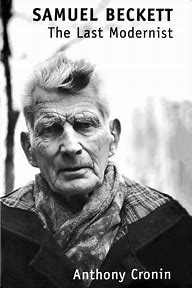
It can be ok to fail. As Samuel Beckeett advised writers. ´No matter. Try again. Fail again. Fail better.´
Failure is good. Failure admits ambition. It requires courage to fail and even more courage to know that you’re going to fail. Reach beyond yourself. The true daring is the ability to go to the postbox knowing that it will contain yet another rejection letter. Don’t rip it up. Don’t burn it. Use it as wallpaper instead. Preserve it and reread it every now and then. Know that in the years to come this rejection letter will be a piece of nostalgia. It will yellow and curl and you will remember what it once felt like to throw your words against what everyone presumed would be your silence. Failure is vivifying. You know you’re better than it. Failure gets you up in the morning. Failure gets your blood circling. Failure dilates your nostrils. Failure tells you to write a bigger story and a better one.
And in the end there’s only one real failure – and that’s the failure to be able to fail. Having tried is the true bravery.
I would like the jury to be able to fully understand you Professor. How can say it is ok to fail?

photo 8 gide ´One does not discover new lands´, said André Gide, ´without consenting to lose sight of the shore for a very long time´.
Gide, you may be aware, was a French author and winner of the Nobel Prize in Literature (in 1947). Gide’s career ranged from its beginnings in the symbolist movement, to the advent of anti-colonialism between the two World Wars. The author of more than fifty books, at the time of his death his obituary in The New York Times described him as France’s greatest contemporary man of letters and judged the greatest French writer of this century by the literary cognoscenti.
Sometimes, young writer, you just have to have the cojones to wipe the whole slate clean. Occasionally you know – deep in your gut – that it’s not good enough. Or you’ve been chasing the wrong story. Or you’ve been waiting for another moment of inspiration.
Often the true voice is not heard until long into the story. It might be a year of work, hundreds of pages, or even more. (One of the most liberating days of my writing life was when I threw 18 months of work away.) But something in you knows – it just knows – that everything you have written so far has just been preparation for what you are now about to write. You have finally found your north, your east, your west. No south, no going back.
So you have to throw it away. (OK, let’s be honest here: you don’t actually throw the pages away. Box them up or back them up, just in case you might be making a mistake.)
It is terrifying of course. You close the file, you bury the pages. Now you’re pageless and your back is truly up against the wall. So you open up another file, sharpen the pencil, and settle down once again´.
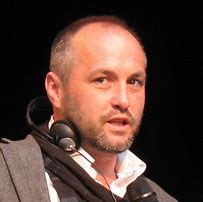
Professor McCann, to summarise for us, remind the jury why we need writers.
´If we are not sometimes baffled and amazed and undone by the world around us, rendered speechless and stunned, perhaps we are not paying close enough attention.´
Ben Marcus said that, and whenever I repeat it I think writers remind all of us of that fact.
Gogol said that the last line of every story was: “And nothing would ever be the same again.” Nothing in life ever really begins in one single place, and nothing ever truly ends. But stories have at least to pretend to finish. Don’t tie it up too neatly. Don’t try too much. Often the story can end several paragraphs before, so find the place to use your red pencil. Print out several versions of the last sentence and sit with them. Read each version over and over. Go with the one that you feel to be true and a little bit mysterious. Don’t tack on the story’s meaning. Don’t moralise at the end. Don’t preach that final hallelujah. Have faith that your reader has already gone with you on a long journey. They know where they have been. They know what they have learned. They know already that life is dark. You don’t have to flood it with last-minute light.
You want the reader to remember. You want her to be changed. Or better still, to want to change.
Try, if possible, to finish in the concrete, with an action, a movement, to carry the reader forward. Never forget that a story begins long before you start it and ends long after you end it. Allow your reader to walk out from your last line and into her own imagination. Find some last-line grace. This is the true gift of writing. It is not yours any more. It belongs in the elsewhere. It is the place you have created. Your last line is the first line for everybody else´.
We shall leave the jury to consider your own last line there, Professor,
and I feel sure they will reach the verdict that writers have a place in society. No matter that they write to conceal sometimes rather than to reveal or that they are sometimes unreliable narrators, or that their characters sometimes lie to protect them, they, our writers, like anyone accused of a crime must be given the benefit of any reasonable doubt.
primary source The Guardian
* Letters to a Young Writer: Some Practical and Philosophical Advice by Colum McCann is published by Random House. To order a copy for £11.04 (RRP £12.99) go to bookshop.theguardian.com or call 0330 333 6846. Free UK p&p over £10, online orders only.
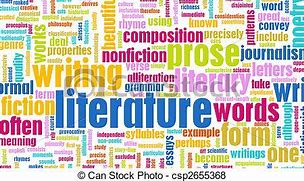
We would like to thank all our readers of Sidetracks And Detours who have attended any or all of our JoinedUpReadingAndWriting event. Next week we return to our normal daily format of bringing you news, interviews, previews and reviews from all across the arts. This will include news of the birth of a new cool in Vietnam, a preview of a forthcoming His N Hers zoomed Jazz concert from Reading, and a review of a recent day when music offered us shelter from the storm. We also take a look at an interview with an artist and business woman making a name for herself with her fair trade clothing. We are confident you will find interest reading when you sign in next week to Sidetracks And Detours. Please remember, too, that we welcome submissions on any arts related topic, so if you have news, previews, interviews or reviews you would like share with your fellow readers please attach them as a Word document via an e mail to normanwarwick55@gmail.com
Any work subsequently published will be fully attributed so you are invited to include a brief autobiography and jpeg of yourself to accompany the finished article. Although we have extensive archives you may also wish to submit relevant and appropriate jpegs for our consideration to complement your work. We look forward to hearing from you. Meanwhile, see you next week.




Leave a Reply
Want to join the discussion?Feel free to contribute!